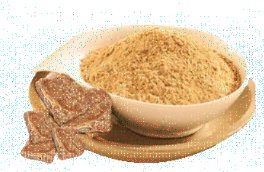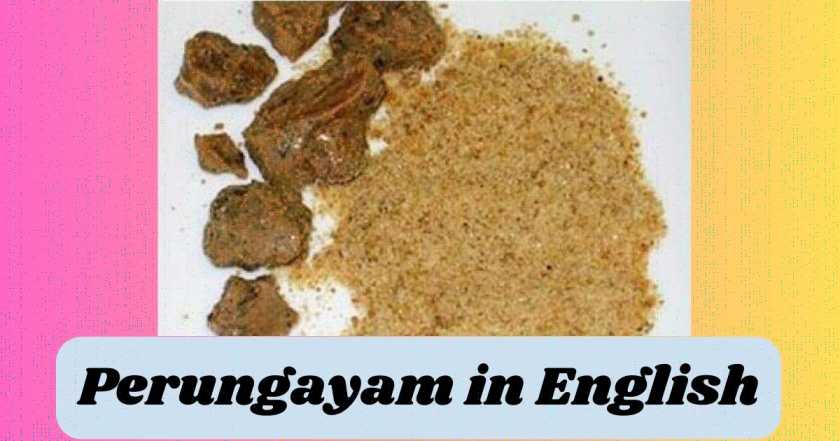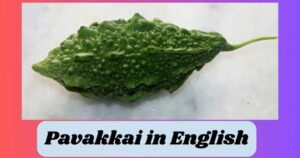Perungayam in English
- Perungayam meaning in English is “Asafoetida“
Perungayam in Hindi
- Perungayam in Hindi is “Hing“
Perungayam in Malayalam
- Perungayam’s Malayalam name is “Kaayam“
Perungayam in Telugu
- Perungayam meaning in Telugu is “Inguva / Ingumo“
Perungayam in Kannada
- Perungayam meaning in Kannada is “Hingu“
Perungayam in Bengali
- Perungayam meaning in Bengali is “Hing“
Perungayam in Marathi
- Perungayam meaning in Marathi is “Hing“
Perungayam in Gujarati
- Asafoetida meaning in Gujarati is “Hing“

What is Perungayam?
Perungayam, also known as Asafoetida, is a popular spice with a rich history and diverse uses. Derived from the Tamil word “Perungayam,” this aromatic ingredient adds a unique flavor to various dishes. Asafoetida, scientifically known as Ferula assa-foetida, originates from the resin of the giant fennel plant and has been a staple in culinary practices for centuries.
In traditional Indian cuisine, Perungayam is valued for its strong umami flavor, often described as a mix of onion, garlic, and even truffle notes. This distinctive taste makes it a key ingredient in vegetarian and lentil-based dishes, enhancing the overall flavor profile. Its pungent aroma mellows when cooked, leaving behind a subtle, savory taste that complements a wide range of recipes.
The physical characteristics of Perungayam are equally intriguing. In its raw form, it appears as a resinous gum with a dark brown color. When used in cooking, it transforms into a golden-brown powder, releasing its intense aroma and flavor. Cultivation of the giant fennel plant, the source of Asafoetida, requires specific growing conditions, including well-drained soil and a warm climate.
Perungayam, known as “Hing” in Hindi, is referred to as “Kaayam” in Malayalam. In Telugu, it’s called “Inguva” or “Ingumo,” while in Kannada, it is known as “Hingu.” Bengali, Marathi, and Gujarati speakers also use the term “Hing” to refer to Perungayam.
Unveiling the English Name of Perungayam
Perungayam, also known as Asafoetida, carries a name that reflects its unique identity in the world of spices. The English name “Asafoetida” has its roots in Latin, where “asa” means resin and “foetida” translates to a strong smell. This translation aptly captures the essence of this aromatic ingredient, known for its pungent aroma and distinctive flavor profile.
The name “Asafoetida” not only hints at the resinous nature of Perungayam but also alludes to its historical uses as a medicinal herb. In ancient times, this spice was believed to have potent healing properties, particularly for digestive issues and respiratory ailments. The strong smell associated with Asafoetida served a dual purpose, acting as a preservative and a deterrent against pests.
Perungayam Benefits
Perungayam, also known as Asafoetida, offers a plethora of benefits that go beyond just enhancing the flavor of your dishes. Let’s delve into the top 10 health benefits associated with Perungayam consumption.
- Digestive Aid: Perungayam is renowned for its digestive properties, aiding in relieving bloating, gas, and indigestion.
- Anti-inflammatory: The active compounds in Perungayam exhibit anti-inflammatory effects, potentially reducing inflammation in the body.
- Antioxidant Rich: Loaded with antioxidants, Perungayam helps combat oxidative stress and supports overall health.
- Respiratory Health: Traditionally used to alleviate respiratory issues like asthma and bronchitis, Perungayam can help clear congestion and promote easier breathing.
- Blood Pressure Regulation: Some studies suggest that Perungayam may assist in regulating blood pressure levels.
- Anti-microbial Properties: Perungayam possesses antimicrobial properties that can help fight off harmful bacteria and infections.
- Aids in Menstrual Symptoms: For women, Perungayam consumption may help alleviate menstrual cramps and discomfort.
- Skin Health: The antioxidants in Perungayam contribute to healthy skin by combating free radicals and promoting a youthful complexion.
- Weight Management: Including Perungayam in your diet may aid in weight management by boosting metabolism and promoting satiety.
- Boosts Immunity: By supporting overall health and providing essential nutrients, Perungayam can help strengthen the immune system.
Incorporating Perungayam into your culinary repertoire not only elevates the taste of your dishes but also offers a myriad of health benefits. From aiding digestion to boosting immunity, this versatile spice is a valuable addition to your kitchen essentials.
Culinary Uses and Recipes of Perungayam
Culinary versatility of Perungayam extends across various cuisines, making it a staple in kitchens worldwide. From Indian curries to Middle Eastern stews, this aromatic spice adds a unique flavor profile that enhances the overall taste of dishes. Incorporating Perungayam into your cooking not only elevates the sensory experience but also brings a host of health benefits to the table.
In Indian cuisine, Perungayam is a key ingredient in tempering, adding a distinct umami flavor to dals, sambar, and vegetable dishes. Its pungent aroma mellows when heated, releasing a savory essence that complements lentils and legumes perfectly. For Middle Eastern recipes, Perungayam can be used in meat-based dishes like kebabs or mixed with yogurt for a flavorful dip.
When using Perungayam in your cooking, remember that a little goes a long way. Start with a small pinch to avoid overpowering the dish. Experiment with different cooking techniques such as blooming the spice in oil or adding it towards the end of cooking for maximum flavor impact.
Perungayam’s Medicinal Properties
Explore the medicinal properties of Perungayam, a spice that not only tantalizes taste buds but also offers a plethora of health benefits. In Ayurveda and herbal medicine, Perungayam has been revered for centuries for its therapeutic properties. From aiding digestion to boosting immunity, this aromatic spice is a powerhouse of wellness.
Traditional practices have long utilized Perungayam for its anti-inflammatory and antibacterial qualities. It is believed to soothe digestive issues, alleviate bloating, and promote gut health. Additionally, its antimicrobial properties make it a go-to remedy for combating infections and promoting overall well-being.
Modern research has delved into the medicinal potential of Perungayam, confirming many of its traditional uses. Scientific studies have highlighted its antioxidant properties, which help in neutralizing harmful free radicals in the body. Moreover, its anti-inflammatory effects have shown promise in managing conditions like arthritis and inflammatory bowel diseases.
Whether incorporated into herbal remedies or used in culinary creations, Perungayam continues to captivate health enthusiasts worldwide. Its diverse range of medicinal properties makes it a valuable addition to any wellness routine. From supporting digestion to bolstering immunity, this spice offers a holistic approach to health and vitality.
Growing and Harvesting Perungayam
Cultivating Perungayam involves specific methods tailored to its growth requirements. Understanding the ideal growing conditions is essential for a successful harvest. This aromatic spice thrives in warm climates with well-drained soil, making it a versatile addition to home gardens or larger agricultural settings.
When it comes to harvesting Perungayam, timing is crucial to ensure optimal flavor and potency. Traditional techniques involve handpicking the resinous gum from the plant, followed by careful processing to preserve its medicinal properties. Sustainability plays a key role in the harvesting process, emphasizing the importance of responsible practices to minimize environmental impact.
Considering the increasing demand for Perungayam, sustainable cultivation methods are gaining prominence to safeguard its availability for future generations. By prioritizing eco-friendly approaches and mindful harvesting techniques, growers can contribute to preserving this valuable spice for years to come. Embracing sustainable practices not only benefits the environment but also ensures the continued abundance of Perungayam for culinary and medicinal purposes.







